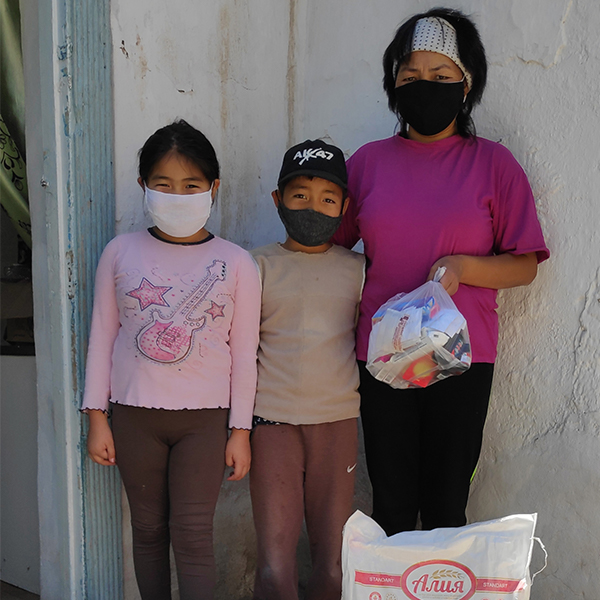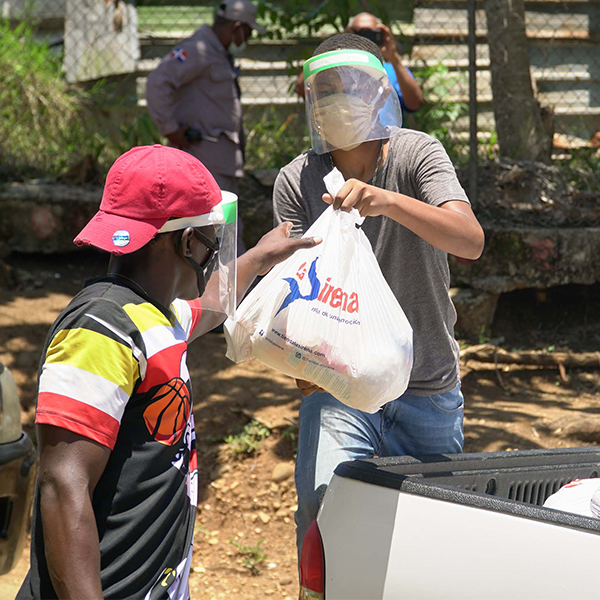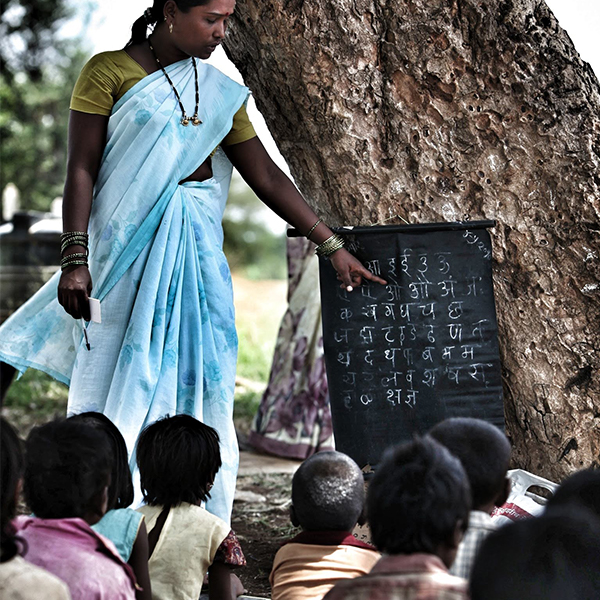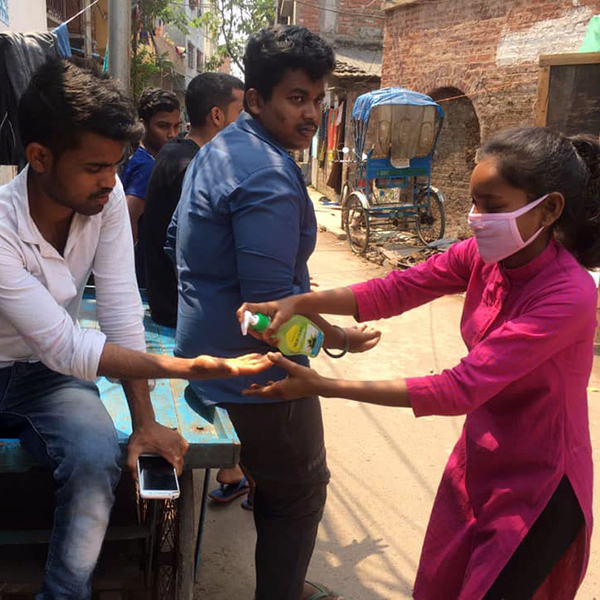As Nepal grapples with a COVID-19 crisis as dire as India’s, Partnership for Sustainable Development is helping children who have lost their parents attend virtual classes and get nutritious meals.
The landlocked nation of Nepal may be much smaller than its neighbor India, but it is dealing with case and death rates just as high. While the country’s residents remained on lockdown for all but three of the last 16 months, its borders and airports stayed open, driving continued infection, according to Bishnu Bhatta, the director of Partnership for Sustainable Development (PSD). The government has done its best by responding to the crisis with free testing and treatment, but there is a lot more to be done. That is where community-based organizations like PSD – which offers programs in education, youth development, health and sanitation, and the environment – come in.
PSD began in 2002 as a partnership between seven Nepalese development professionals seeking a better way to support Nepal’s underprivileged communities. They joined together to work with local communities primarily on small projects with big impacts, like providing rural schools with reliable access to clean water and hygiene facilities. During the COVID-19 pandemic, work at the community level has become even more essential.
“Local community members and local organizations are providing support to vulnerable populations,” said Bishnu. “Community people are helping each other.”
Despite community solidarity, other factors – including the loss of some financial support – have created new challenges for PSD. The countrywide lockdown cut off PSD’s largest sources of funding: foreign universities and organizations whose students and staff travel to Nepal to team up with PSD on projects, providing the funding and some of the labor. Foreign universities and organizations suspended travel to Nepal due to the lockdown, and as a result, PSD has had to postpone or cancel planned projects.
Nevertheless, PSD has found ways to continue supporting local communities. The organization conducted needs assessments and worked with community members to develop solutions to challenges created by the pandemic. This led PSD to prioritize meeting the educational and nutritional needs of orphaned children in Kathmandu through a partnership with the Nepal Children’s Organization (NCO), known locally as Bal Mandir.
Bal Mandir runs eight orphanages across Nepal, including two in Kathmandu. Over the past six years, PSD has completed many projects with Bal Mandir to support the children who live there.
When Nepalese schools went virtual during the lockdown, the children at Bal Mandir had no access to their lessons because they didn’t have computers, and Bal Mandir struggled to provide nutritious food. Some orphanages lost all their funding due to the pandemic. By using two grants from GFC’s COVID-19 Emergency Response Fund, including one supported by the Center for Disaster Philanthropy, and forgoing salaries for senior staff, PSD provided Bal Mandir’s Kathmandu orphanages with nutritious food and six laptops for virtual schooling.
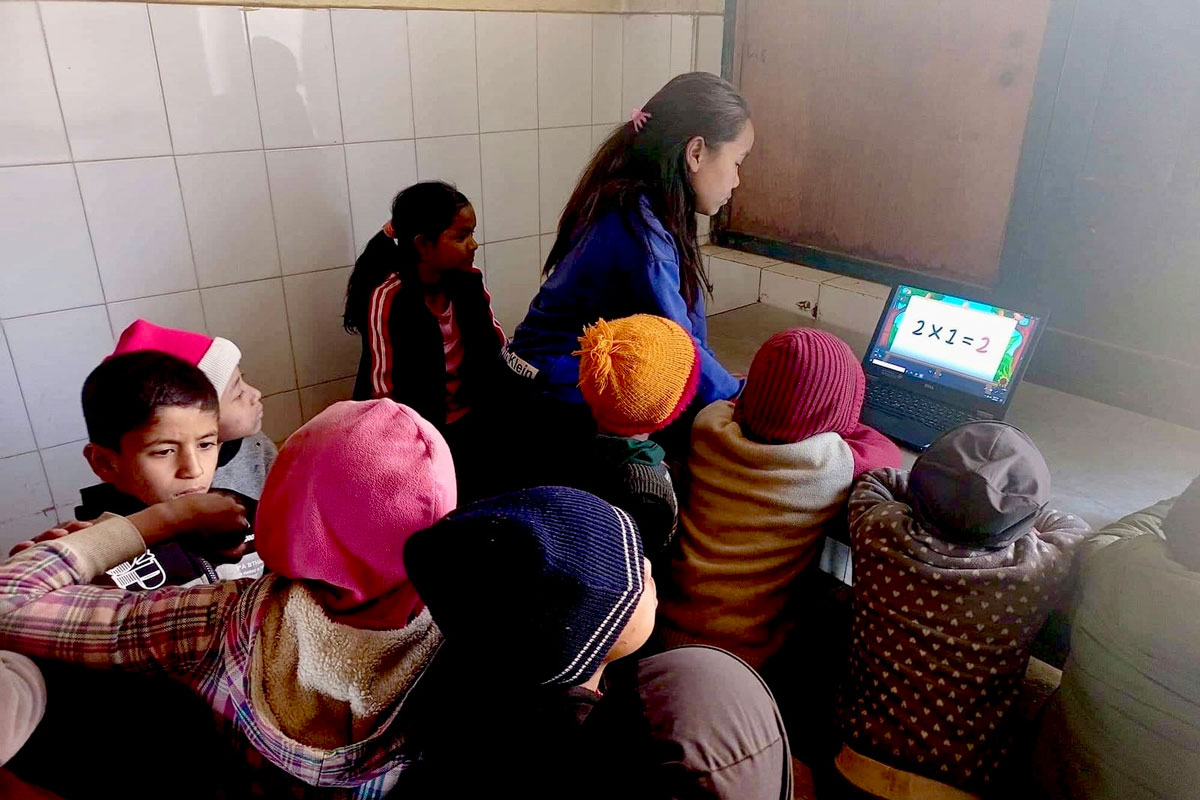
“We are very thankful to GFC that during this difficult time, they provided us with an emergency grant,” Bishnu said. “In GFC, we have a good partner who we’ve been working with a long time.”
The orphanages assigned different age groups to each laptop and scheduled time slots, allowing 140 students to attend their online classes with just six laptops. For many of the children, this was their first experience with a computer, and they were delighted.
“This is the first time I am seeing [a] laptop this close and taking online classes…. [it] is very fun and engaging,” one child told PSD.
This spring, the COVID-19 pandemic reached these virtual students, infecting 74 children and staff members at the orphanages. Fortunately, they are all recovering.
It is uncertain when Nepalese schools will reopen. If schools do resume in-person classes soon, PSD plans to supply them with handwashing stations, masks, and hand sanitizer. If they remain closed, the organization intends to provide virtual learners with more laptops.
“I believe if something happens, it happens for a reason. I feel my organization has a better future,” Bishnu said. “Times will change, and we will see a prosperous Nepal soon.”
Header photo: Students attending their lessons at Bal Mandir. © PSD
